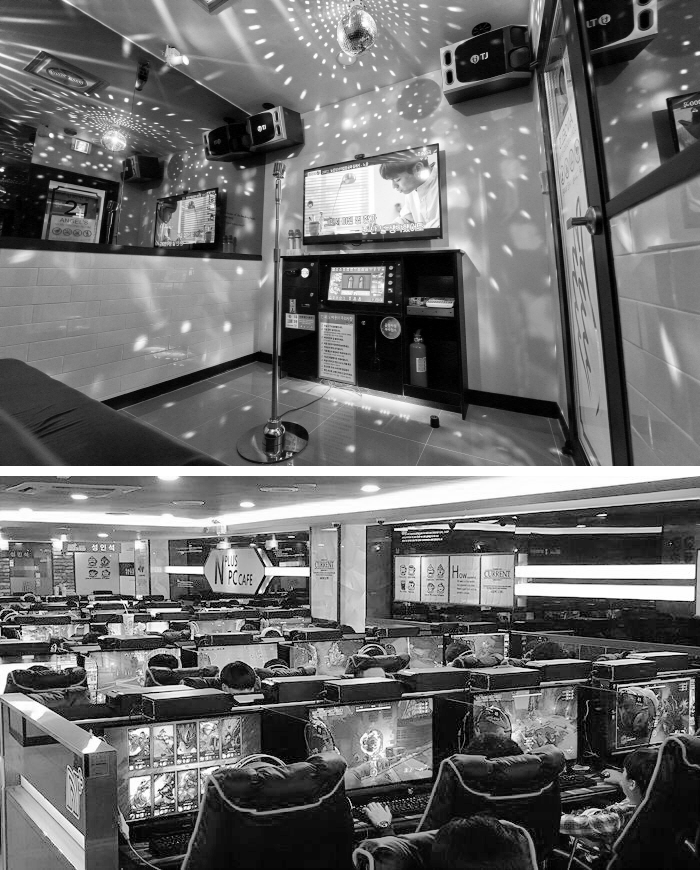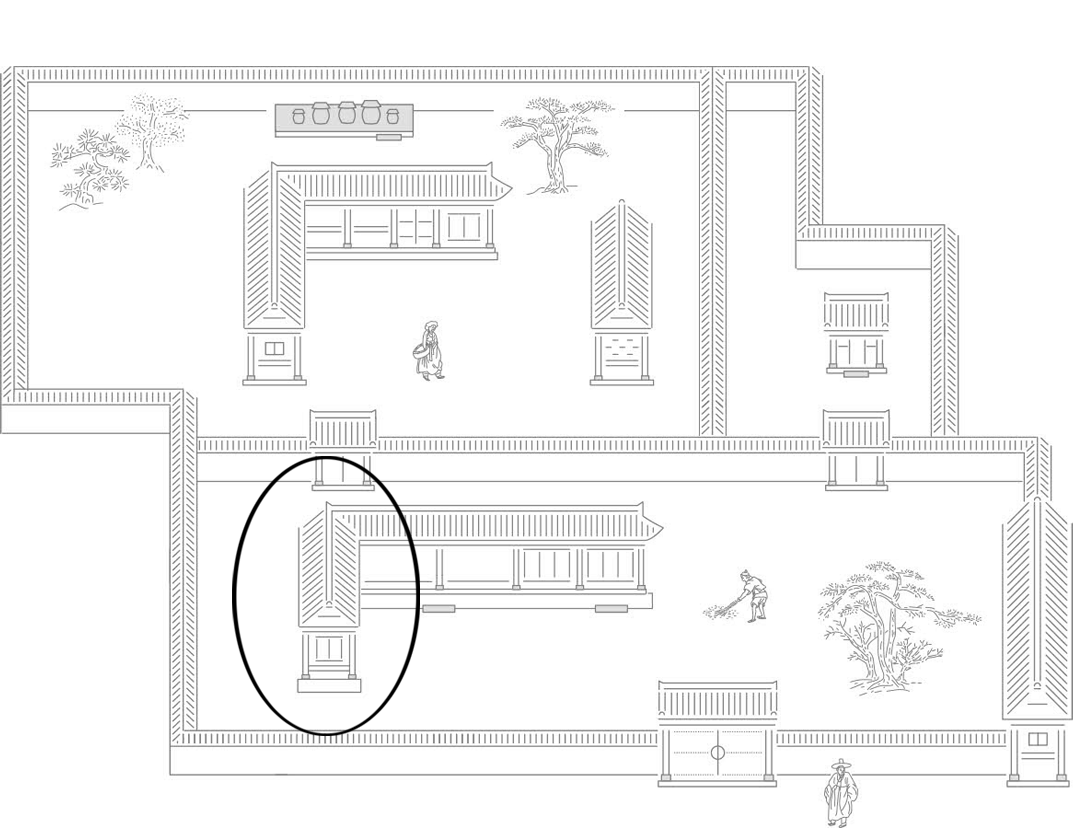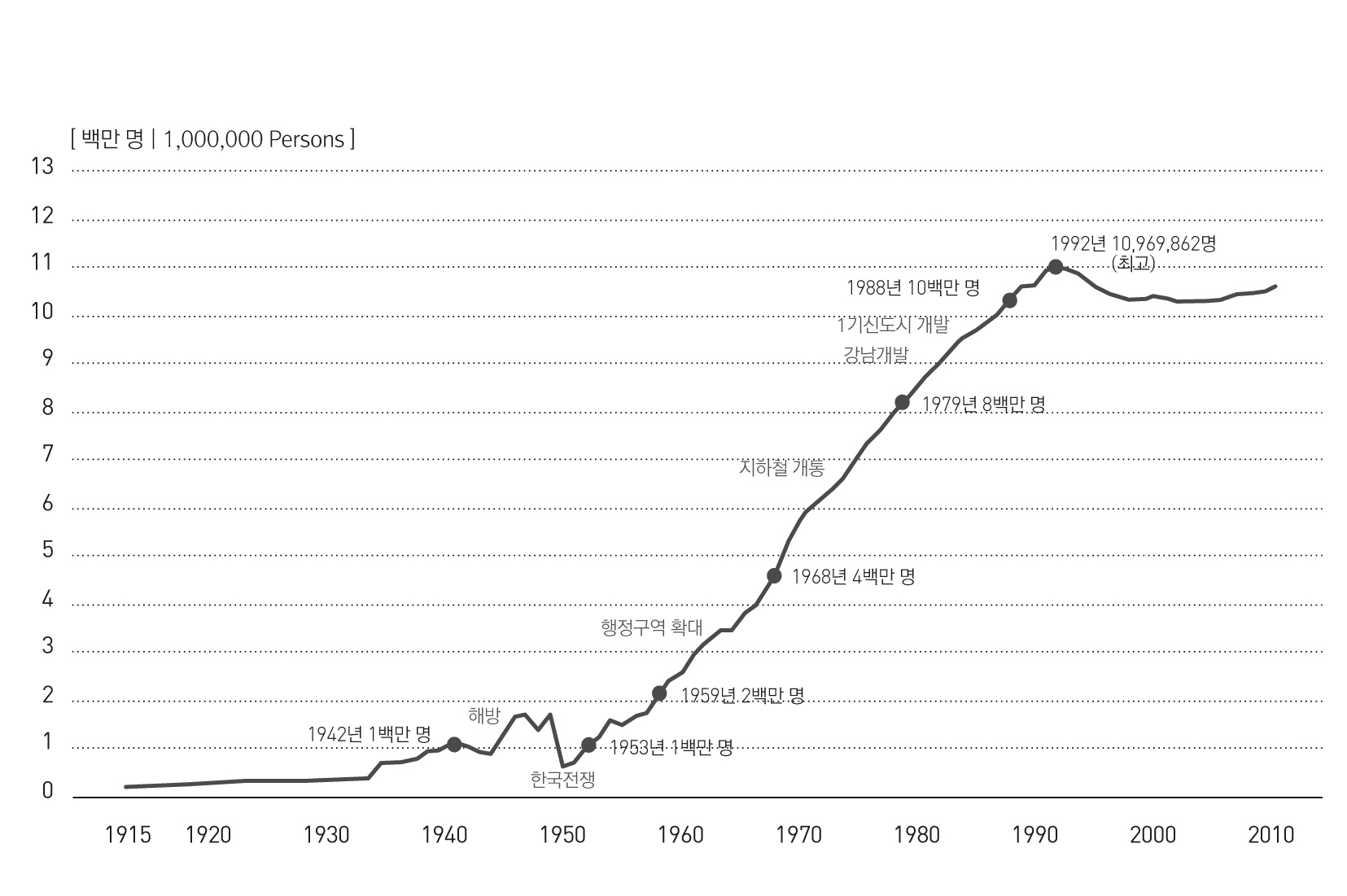One of the unique features of Korean culture is that there are many stores with the name ‘방’[bang] which means ‘room.’ You can especially find a lot of ‘방’[bang] in places for public entertainment; places such as PC Bang(PC Rooms), Norae Bang(Karaoke), Jimjil Bang(Sauna), and so on.
In the 1900s, it was the 복덕방[Bokdeok Bang] that led to the “방[bang] culture” in Korea. 복덕방[Bokdeok Bang] is the current real estate, and there is one in each neighborhood, so it serves as a gathering place for locals to socialize and share information. In The Netherlands, you often see elderly people drinking coffee or taking a break at a Kringloop, a thrift store, and it can be understood that the 복덕방[Bokdeok Bang] acted in a similar role.
Then, how can we understand the reason for why the “방[bang] culture” has progressed so far? This is due to the increase in population density compared to the size of the area, particularly in the city. Since 1960, Korea has experienced a rapid process of industrialization and urbanization as a result of economic development. A large population suddenly gathered in the city,
Due to this Korea has the largest number of Cafes per unit urban area in the world. The cafe space is more of a concept which allows you to rent a small table space for two or three hours for around 4 Euro; the price of a cup of coffee rather than a place to drink coffee.
Seok Ho Choi, a Professor at Seoul National University of Science and Technology, finds that the reason why Koreans seek private spaces within public spaces is due to the fact that the home is often difficult to perceive as “personal space.” He claims that having enough space at home is difficult in Korea because the distance between rooms is short and the space itself is limited. Furthermore, because Korean parents often freely enter their children’s rooms, although children are not permitted to enter their parent’s rooms without permission. The tendency to find personal space violated within the home has led to the use of public spaces; therefore, leading to the development of Korea’s “방[bang] culture.”



